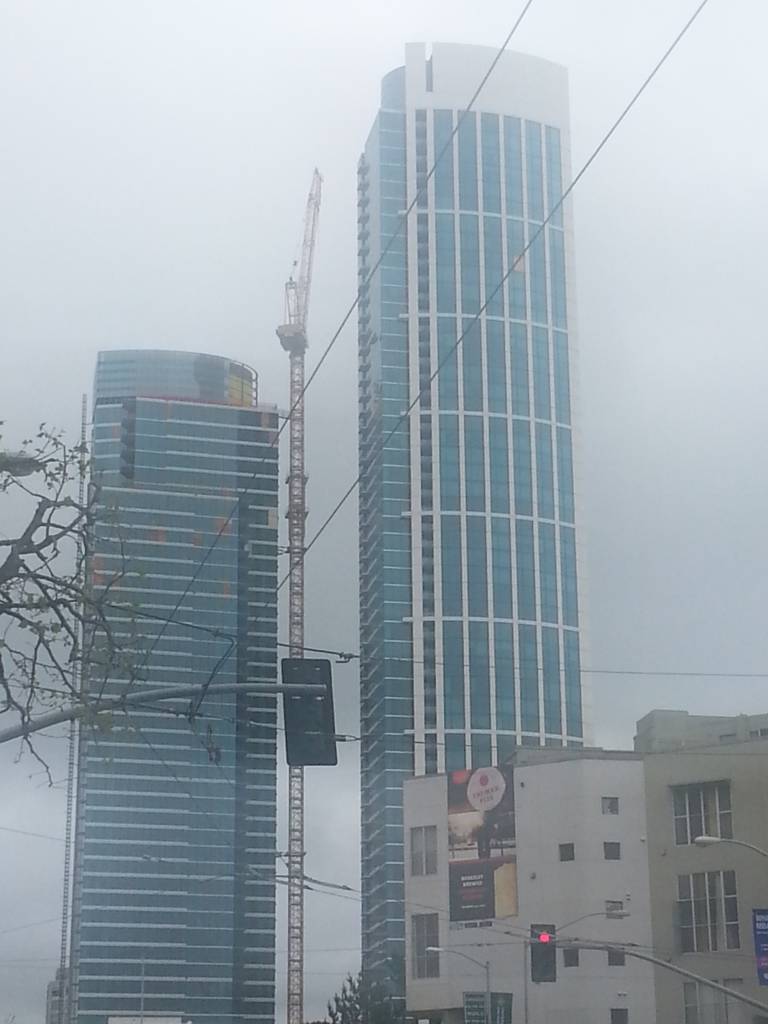
By Zelda Bronstein
In a story that’s become somewhat legendary of late, David Talbot, founder of Salon.com, asked whether San Francisco could survive the tech boom: “How much tech can one city take?”
There’s no part of town where that’s a more crucial issue than South of Market, where the city is making plans that could change the character of one of the last places in San Francisco that still has industrial jobs and businesses—what the city planners call Production, Distribution and Repair, or PDR.
And what’s at stake isn’t only SoMa’s PDR but also the neighborhood’s fragile motley character.
It’s hard to see how Central SoMa could accommodate much more tech and still retain its fast-disappearing heterogeneity. According to a report released last December by the commercial real estate services firm CBRE, tech already accounts for 3.5 million square feet, or 58 percent of leased office space, in “South of Market,” an area bounded on CBRE’s map by Bryant, the waterfront, King and 8th; and 657,000 square feet, or almost 21 percent of the office space in “Yerba Buena,” which lies between Market, 3rd, Bryant, and 6th Streets.
Even the district’s office space is getting less diverse, as landlords tailor their holdings to satisfy tech tastes. Not incidentally, since the end of 2009, average asking rents in CBRE’s SoMa have increased by 87 percent, rising from about $30 to $57 per square foot a year, and by 95 percent in Yerba Buena.
Can this go on forever? No – but a city plan for Central SoMa assumes that tech companies are going to keep pouring into San Francisco, and into Central SoMa in particular, for the foreseeable future.
That assumption seems plausible in light of the CBRE study, which says that the outlook for the city’s tech sector is bright and, unlike the first tech boom, sustainable. This time, investors are passing up riskier firms for more established companies, while consumers are spending more and more money on technology.
But CBRE also sees “cautionary signs.” In San Francisco, as for the North American tech industry as a whole, things are getting “frothy” at the top, as valuations of “high expectation firms” are “surging well above more established benchmarks” (see WhatsApp). At some point, it all may crash – but by then, the damage to SoMa could be done.
So where does all of this come from, anyway? Why is SoMa – with the support of the City Planning Department – in the crosshairs of a plan that could drive out the very blue-collar jobs that the city claims to want to protect?
Lies, Damned Lies, and Statistics
It’s called Plan Bay Area – a vision of a much-more-crowded future in San Francisco driven by state legislation and delineated by the Association of Bay Area Governments, which projects massive population growth in the region over the next 30 year – and seeks to drive that growth into what are known as “priority development areas.” SoMa is one of those places – and the plan does little to protect the existing residents and businesses that will face displacement as it moves forward. (more after the jump)






